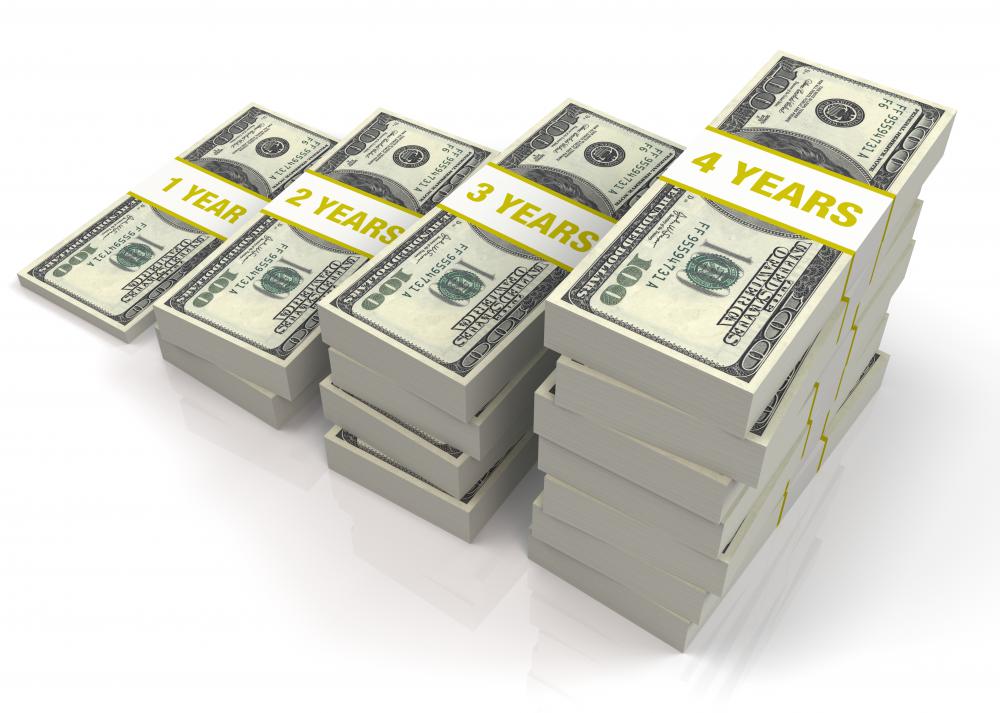At SmartCapitalMind, we're committed to delivering accurate, trustworthy information. Our expert-authored content is rigorously fact-checked and sourced from credible authorities. Discover how we uphold the highest standards in providing you with reliable knowledge.
What is a Financial Asset?
A financial asset is an intangible representation of the monetary value of a physical item. It obtains its monetary value from a contractual agreement of what it represents. While a real asset, such as land, has physical value, a financial asset is a document that has no fundamental value in of itself until it is converted to cash. Common types of financial assets include certificates, bonds, stocks, and bank deposits.
One of the most common types of financial assets is a certificate of deposit (CD). A CD is an agreement between an investor and a bank in which the investor agrees to keep a set amount of money deposited in the bank in exchange for a guaranteed interest rate. The bank may offer a higher amount of interest payment since the money is to remain untouched for a set period of time. If the investor withdraws the CD before the end of the contract terms, he or she will lose out on the interest payments and be subject to financial penalties.

Another type of financial asset is a bond. Bonds are often sold by corporations or governments to investors in order to help fund short-term projects. They are a type of legal document detailing the amount of money an investor loaned a borrower and the length of time it needs to be paid. A bond represents how much interest is guaranteed to be returned to the investor along with the original loan amount.

Stocks are one of the only financial assets that do not have an agreed upon ending date. Investing in stock means the investor has part ownership of a company and shares in the company’s profits and losses. He or she can keep the stock for any length of time or decide to sell it to another investor.
Money that is deposited into a bank account also counts as a financial asset, rather than a real asset. When cash is put into a bank account, the proof of the funds is a bank statement that summarizes the value of the account. Deposited cash is not considered a physical asset because the bank uses the money to fund its business and agrees to return it when the account holder decides to withdraw it.
Valuation of financial assets is the process of determining the amount of cash the assets can be converted to. This process is often used to find out a person’s personal wealth for legal reasons, such as his or her ability to pay off a debt. The value of a financial asset can drastically change depending on the point in time it is valued. For example, the value of stock can change daily depending on the company’s profits.
A financial asset is typically given a maturity date in a contractual claim. If it remains untouched and unconverted to cash by that date, its value will usually increase. Cashing out an asset before its maturity date can ultimately cost a person financial penalties because it violates the terms of the agreement.
AS FEATURED ON:
AS FEATURED ON:












Discussion Comments
Mutsy- I agree with you, I love bonds. My favorite bond type is the municipal bond.
I love the fact that these bonds offer a guaranteed yield that provides tax- free income for the life of the bond. This really adds up if you have larger balances. This is a great financial asset to have.
SurfNturf- I want to add that bonds also make great financial assets.
For example, zero coupon bonds offer a substantial discount off the face value of the bond which is offered at maturity. This provides a guaranteed gain that the investor will receive at maturity.
EE bonds are also great because they can be purchased for half of the face value of the bond which the investor will receive upon maturity. Many investors purchase EE bonds for future long term needs like a college education for their children or a down payment on a home.
I just want to add that many people seek advice regarding the purchase of financial assets.
Financial advisors generally provide guidance as to what financial assets should be purchased. These advisors are often compensated either by an hourly fee or a percentage of the overall financial assets of the investor.
Since financial assets such as stocks and securities may lose value over time, it is best to partner up with a financial advisor to help limit the volatility in the market. Advisors do this by guiding the investor toward the purchase of securities that are stable.
Post your comments